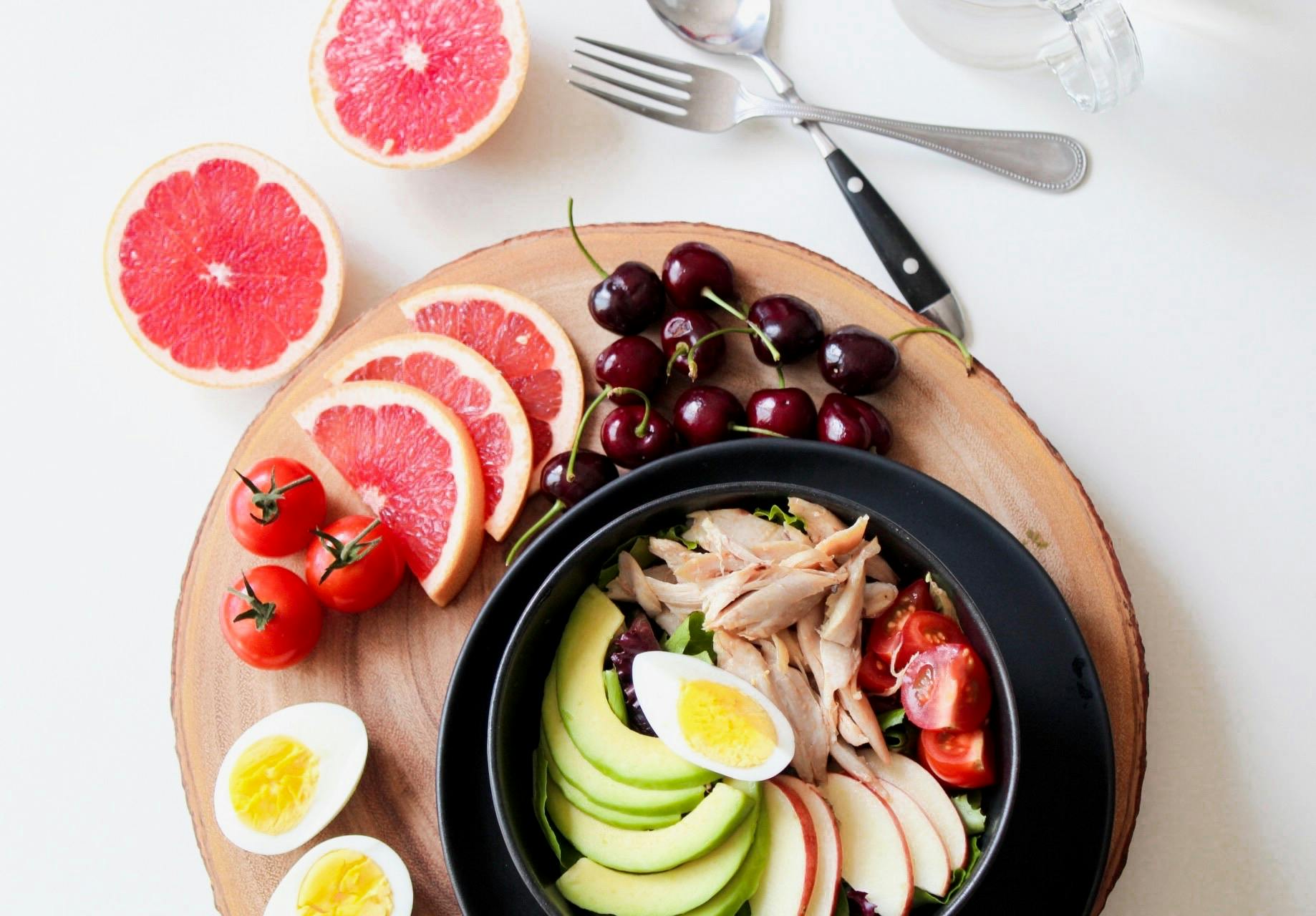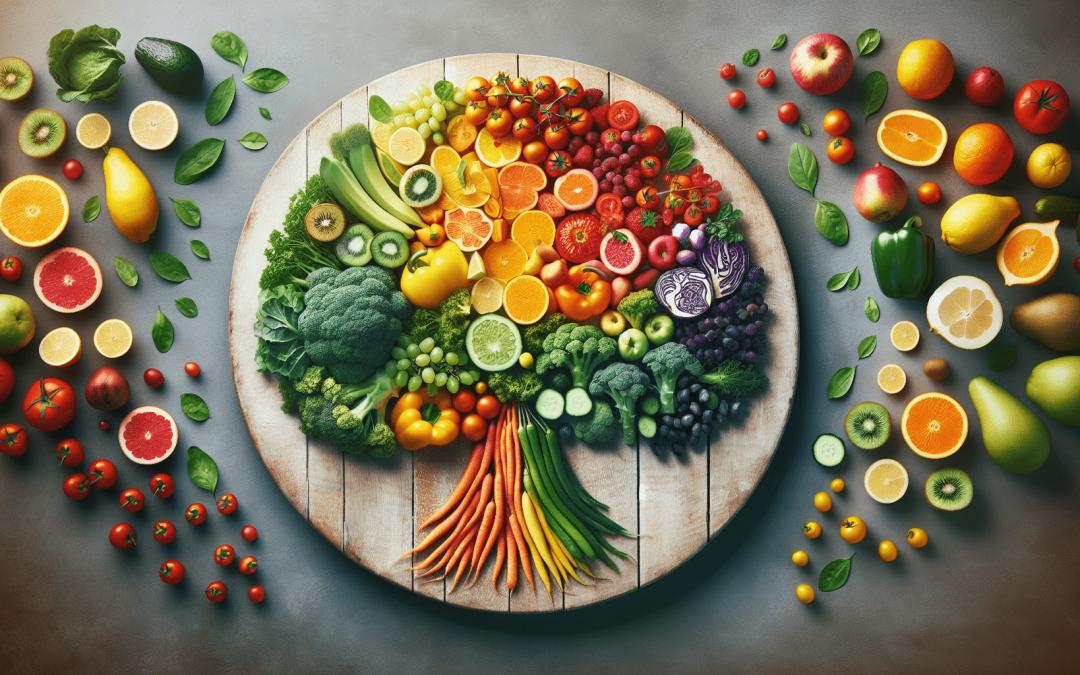Have you ever wondered how you can improve your overall well-being through healthy eating habits? Let’s dive into the world of nutritious food choices and learn how you can make positive changes to your diet for a better life.
Importance of Healthy Eating Habits
Eating a balanced diet plays a crucial role in maintaining good health and well-being. By consuming a variety of nutrients, vitamins, and minerals, you provide your body with the essential tools it needs to function properly. Healthy eating habits can help prevent chronic diseases, boost your energy levels, and improve your mood.
Why is it important to eat a variety of foods?
It is essential to consume a variety of foods to ensure that your body receives all the necessary nutrients it needs to function optimally. Each type of food offers a unique set of vitamins, minerals, and antioxidants that contribute to your overall health. By incorporating a diverse range of foods into your diet, you can ensure that you are meeting your body’s nutritional requirements.
How can healthy eating habits benefit your overall well-being?
Healthy eating habits can have a profound impact on your overall well-being. By fueling your body with nutritious foods, you can boost your immune system, improve your cognitive function, and enhance your physical performance. Additionally, eating a balanced diet can help you maintain a healthy weight, reduce your risk of chronic diseases, and promote a positive outlook on life.
Building a Foundation for Healthy Eating
Creating a strong foundation for healthy eating involves making smart food choices and developing positive eating habits. By focusing on nutrient-dense foods and practicing mindful eating, you can establish a sustainable approach to nourishing your body.
What are nutrient-dense foods?
Nutrient-dense foods are those that provide a high amount of nutrients relative to their calorie content. These foods are rich in vitamins, minerals, fiber, and antioxidants, making them essential for optimal health. Examples of nutrient-dense foods include fruits, vegetables, whole grains, lean proteins, and healthy fats.
How can you practice mindful eating?
Mindful eating involves being present and fully aware of your food choices and eating habits. By paying attention to the flavors, textures, and sensations of each bite, you can savor your food more fully and make conscious decisions about what you eat. Mindful eating can help you recognize hunger and fullness cues, prevent overeating, and cultivate a healthier relationship with food.

Tips for Making Healthy Food Choices
Making healthy food choices can be simple with the right strategies and tools in place. By incorporating these tips into your daily routine, you can empower yourself to make informed decisions about what you eat and create a more balanced diet.
How can you read food labels effectively?
Reading food labels is a valuable skill that can help you make informed choices about the products you purchase. Look for key information, such as serving size, calories, and nutrient content, to understand the nutritional value of the food. Pay attention to the ingredients list and try to choose products with minimal additives, preservatives, and artificial ingredients.
What are some simple swaps you can make to improve your diet?
Making small changes to your diet can have a significant impact on your overall health. Consider swapping out unhealthy foods for healthier alternatives, such as replacing sugary drinks with water, choosing whole grains over refined grains, and opting for lean proteins instead of processed meats. By making these simple swaps, you can gradually transition to a more balanced and nutritious diet.
Incorporating Superfoods into Your Diet
Superfoods are nutrient-packed powerhouses that offer a wide range of health benefits. By incorporating these nutrient-dense foods into your diet, you can boost your intake of essential nutrients and enhance your overall well-being.
What are some examples of superfoods?
Superfoods come in a variety of forms and offer unique health-promoting properties. Examples of superfoods include berries, leafy greens, nuts and seeds, fatty fish, and legumes. These foods are rich in vitamins, minerals, antioxidants, and healthy fats, making them valuable additions to a balanced diet.
How can you incorporate superfoods into your daily meals?
There are numerous ways to incorporate superfoods into your daily meals to maximize their benefits. Add berries to your breakfast smoothie, toss leafy greens into your salad, sprinkle nuts and seeds on top of yogurt, include fatty fish in your dinner rotation, and incorporate legumes into soups and stews. By getting creative with your recipes, you can enjoy the health-promoting properties of superfoods in delicious and satisfying ways.

The Role of Hydration in a Healthy Diet
Staying hydrated is essential for maintaining good health and supporting your body’s functions. Water is essential for digestion, nutrient absorption, temperature regulation, and waste elimination. By prioritizing hydration and drinking an adequate amount of fluids each day, you can support your overall well-being.
How much water should you drink each day?
The amount of water you need to drink each day varies depending on your age, sex, activity level, and overall health. A general guideline is to aim for about eight 8-ounce glasses of water per day, but individual needs may vary. Pay attention to your body’s thirst cues and adjust your fluid intake accordingly to stay properly hydrated.
What are some tips for staying hydrated throughout the day?
Staying hydrated can be easy with a few simple strategies in place. Carry a reusable water bottle with you to have easy access to water throughout the day. Set reminders on your phone or use a hydration-tracking app to help you stay on top of your fluid intake. Additionally, consume hydrating foods, such as fruits and vegetables with high water content, to support your hydration goals.
Meal Planning for Success
Meal planning is a valuable tool for setting yourself up for success with healthy eating. By taking the time to plan and prepare nutritious meals in advance, you can make it easier to stick to your dietary goals and avoid unhealthy food choices.
How can meal planning support your healthy eating habits?
Meal planning can help you stay on track with your healthy eating goals by providing structure and organization to your meals. By planning out your meals for the week, you can ensure that you have nutritious options readily available and avoid reaching for unhealthy convenience foods. Meal planning can also save you time and money by reducing food waste and unnecessary trips to the grocery store.
What are some tips for effective meal planning?
Effective meal planning involves a combination of strategy, creativity, and preparation. Start by creating a weekly meal plan that includes a variety of nutrient-dense foods and flavorful recipes. Make a grocery list based on your meal plan to ensure that you have all the ingredients you need on hand. Set aside time each week to prep and cook meals in advance, so you have healthy options ready to go when you need them.

Strategies for Dining Out Mindfully
Eating out at restaurants can present challenges when it comes to making healthy food choices. However, with the right strategies in place, you can enjoy dining out while still prioritizing your health and well-being.
How can you make healthier choices when dining out?
When dining out, look for restaurants that offer a variety of healthy options, such as salads, grilled proteins, and vegetable-based dishes. Avoid dishes that are fried, creamy, or heavily processed, as these tend to be higher in unhealthy fats, sugars, and sodium. Ask for dressings and sauces on the side, choose water or unsweetened beverages, and practice portion control to avoid overeating.
What are some tips for dining out mindfully?
Dining out mindfully involves being conscious of your food choices, portion sizes, and eating habits at restaurants. Start by scanning the menu for healthy options and making a plan before you order. Be mindful of portion sizes and listen to your body’s hunger and fullness cues to avoid overeating. Savor each bite, eat slowly, and enjoy the experience of dining out without overindulging.
The Importance of Regular Physical Activity
Physical activity is an essential component of a healthy lifestyle and complements healthy eating habits. Regular exercise can improve your cardiovascular health, build muscle strength, boost your energy levels, and support your overall well-being. By incorporating physical activity into your daily routine, you can enhance the benefits of healthy eating and promote optimal health.
How does physical activity support your overall well-being?
Physical activity offers a wide range of benefits for both your physical and mental health. Regular exercise can help you maintain a healthy weight, reduce your risk of chronic diseases, improve your mood, and enhance your quality of life. By engaging in physical activity, you can increase your energy levels, build strength and endurance, and support your body’s functions.
What are some simple ways to incorporate physical activity into your day?
Incorporating physical activity into your day can be easy with a few simple strategies in place. Take short walks during your breaks at work, use the stairs instead of the elevator, bike or walk to nearby destinations, or engage in active hobbies, such as gardening or dancing. Find activities that you enjoy and make them a regular part of your routine to stay active and healthy.
Practicing Self-Care and Mindfulness
Self-care and mindfulness are essential components of a healthy lifestyle that can help you reduce stress, improve your mental well-being, and enhance your overall quality of life. By prioritizing self-care practices and mindfulness techniques, you can promote a sense of balance, peace, and clarity in your daily life.
How can self-care practices benefit your mental health?
Self-care practices involve taking time for yourself to nurture your mental, emotional, and physical well-being. Engaging in self-care activities, such as meditation, yoga, journaling, or spending time in nature, can help you reduce stress, increase self-awareness, and improve your resilience to life’s challenges. By prioritizing self-care, you can cultivate a sense of calm, balance, and inner peace.
What are some mindfulness techniques you can incorporate into your daily routine?
Mindfulness techniques involve being present and fully aware of your thoughts, feelings, and surroundings in the present moment. Incorporate mindfulness practices, such as deep breathing exercises, meditation, gratitude journaling, or body scan exercises, into your daily routine to promote relaxation, reduce anxiety, and increase your overall well-being. By practicing mindfulness, you can enhance your mental clarity, emotional resilience, and sense of peace.
In conclusion, healthy eating habits play a vital role in supporting your overall well-being and enhancing your quality of life. By focusing on nutrient-dense foods, mindful eating, and smart food choices, you can create a foundation for optimal health and vitality. Incorporate superfoods, stay hydrated, and practice meal planning to support your dietary goals and make healthy eating a sustainable part of your lifestyle. Additionally, prioritize physical activity, self-care, and mindfulness techniques to further enhance your well-being and promote a balanced and fulfilling life. By making small, positive changes to your diet and lifestyle, you can set yourself up for long-term success and enjoy a healthier, happier, and more vibrant life.
Related Content
- 10 Effective detox for liver Strategies to Boost Your Health in 2025
- The Benefits of an All-Natural Detox Cleanse
- 10 Effective Tips to Cleanse Body Naturally in 2025 for Better Health
- 10 Effective detox cleanse drinks for 2025: Ultimate Guide to Boost Results
- Ultimate Guide to Detox at Home Naturally in 2025 (10 Proven Tips)









